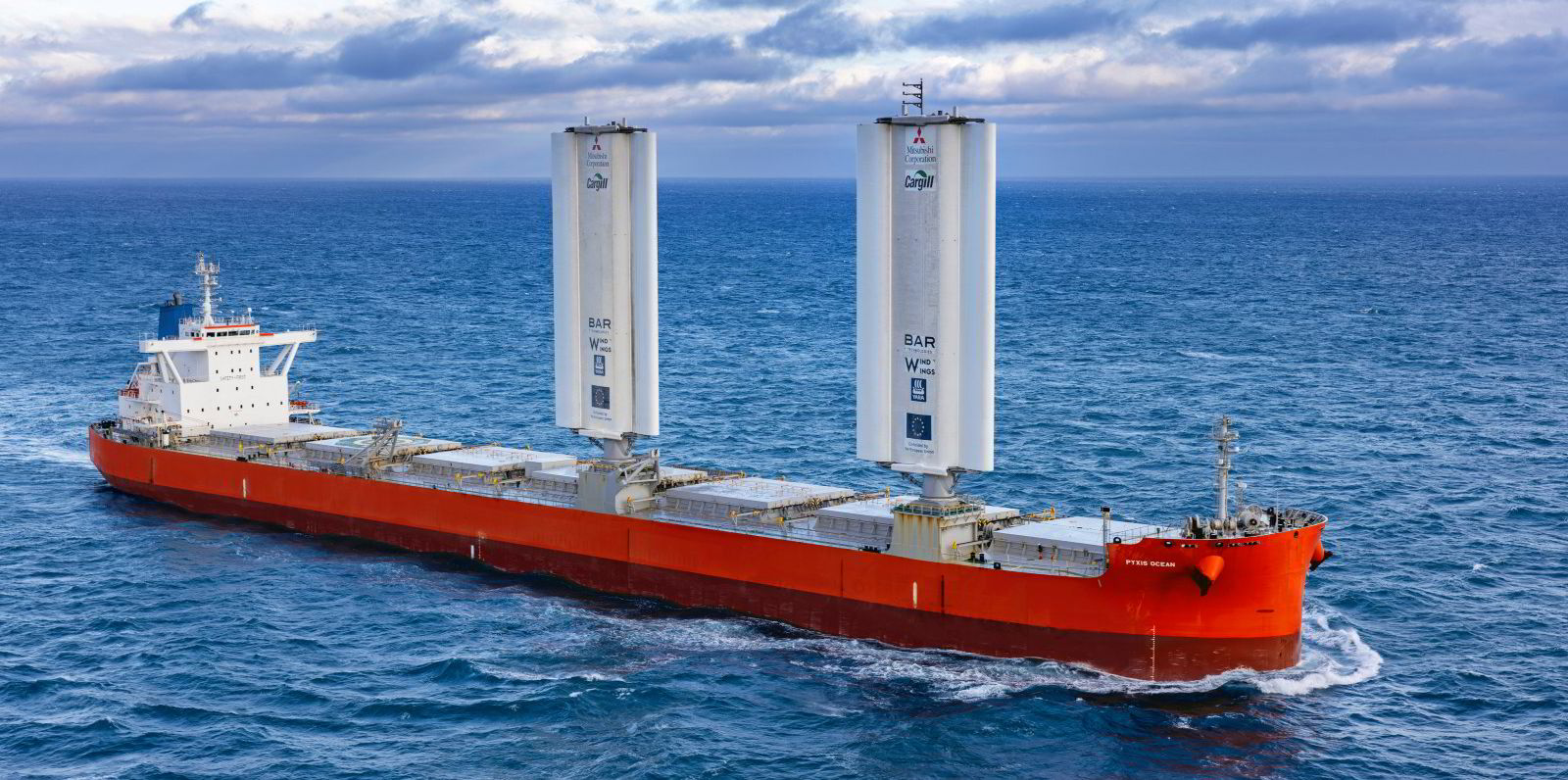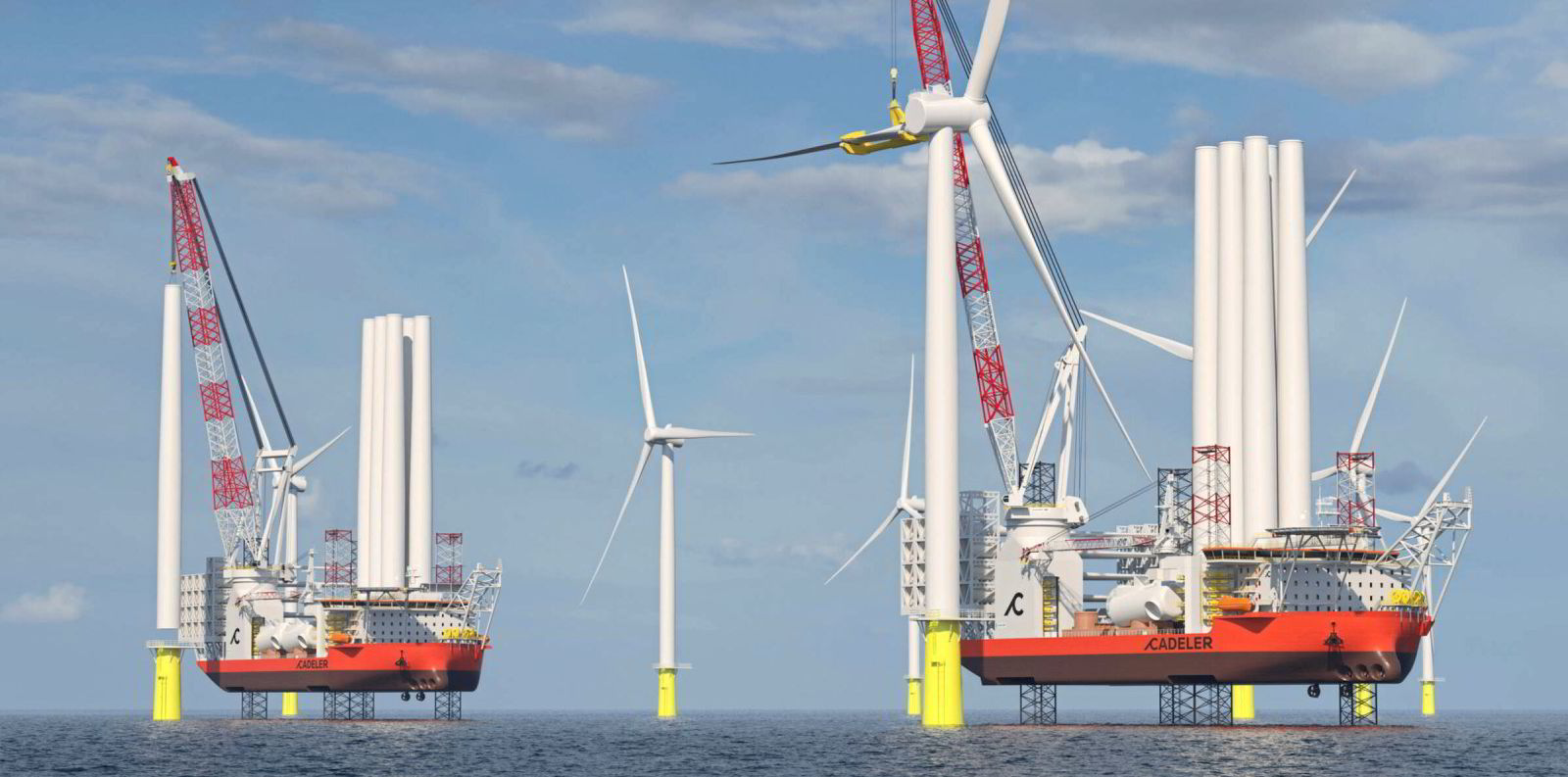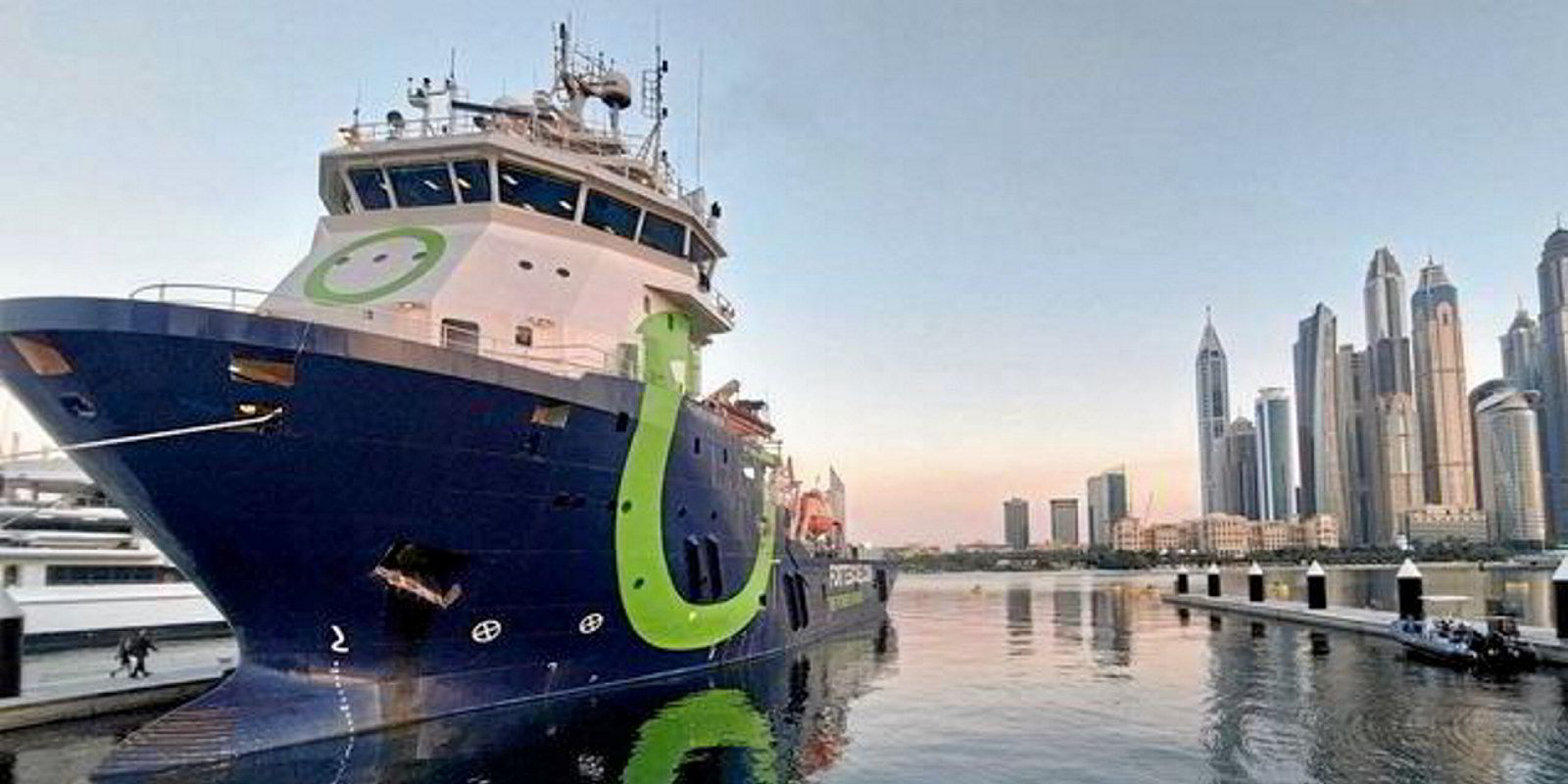Commodities giant Cargill has achieved 14% fuel savings using wind-assisted propulsion on a dry bulk carrier vessel sailing global trade routes and believes the technology can make a significant contribution to shipping industry's efforts to boost renewable energy use.
The bulk carrier Pyxis Ocean was retrofitted with two BAR Technologies-patented WindWings which generated power to save on average three tonnes of fuel per day —close to the previously modelled 15% fuel saving — over a six-month trial, Cargill stated.
During optimal sailing conditions, the Pyxis Ocean achieved savings of more than 11 tonnes per day in fuel consumption, which translated to 41 tonnes per day less CO2 emitted, or a 37% reduction, Cargill added.
The economics of the technology are still tied closely to fossil fuel prices but Jan Dieleman, Cargill Ocean Transportation president, stated: “We are encouraged by the results and have learned a great deal about implementing wind assisted propulsion on dry bulk vessels."
Aeroplane wings
The patented WindWings measured 37.5 metres in height, resembling large aeroplane wings.
They were installed vertically to catch the wind and propel the ship forward, allowing the ship’s engine to be turned down so that the ship can travel at the same speed as a conventional ship using less fuel.
The wings are controlled by a touch panel on the bridge and a simple traffic light system tells the crew when to raise or lower the sails.
Once raised, the operation is fully automated: sensors onboard constantly measure the wind, and the sails self-adjust to the optimal configuration.
“We are on the leading edge of change in the shipping industry and believe technologies that harness the wind could be an important, cost-effective way to achieve our decarbonisation goals in the short, medium and long-term,” said Dieleman.
Future use of the technology on bulk carriers is expected to shift to deployment of three wind wings, to boost fuel savings and emissions reductions further, noted John Cooper, CEO of BAR Technologies.
Some of the funding for the trial project came from European Union sources.
The International Maritime Organisation's (IMO) new greenhouse gas strategy includes a target of having at least 5% of energy coming from very low carbon sources by 2030.
Cargill noted that part of the value of the trial was to show how variances between ports, terminals, and berths may need to be taken into account if wind assisted propulsion (WAP) technology is to play a wider role in the global maritime system.
Key to the efficiency of the system was the ease of use and encouraging the crew to deploy the sail, according to Dieleman, who thanked the captain and crew of the vessel, which is owned by Mitsubishi Corp subsidiary MC Shipping.



